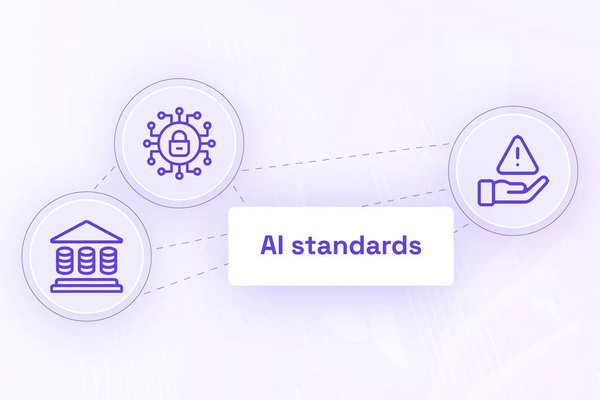November 2023

The G7 nations have unveiled International Guiding Principles on Artificial Intelligence (AI) and a voluntary Code of Conduct for AI Developers, with 11 actionable guidelines for organisations involved in developing advanced foundational models. The guidelines include taking appropriate measures to identify and mitigate risks across the AI lifecycle, publicly reporting AI systems’ capabilities and limitations, and prioritising research to mitigate societal, safety, and security risks. The development is particularly relevant given the urgency among policymakers worldwide to chart regulatory pathways to govern AI responsibly, highlighted by several initiatives, including the Biden-Harris Administration’s Executive Order on AI and the establishment of the United Nations’ High Level Advisory Body.
July 2023

The development and establishment of artificial intelligence (AI) standards has become a pressing necessity as the ecosystem of AI rapidly evolves. Standards act as common guidelines, principles and technical specifications for the development, deployment and governance of AI systems. Technical standards in AI governance encompass foundational, process, measurement, and performance standards. Adopting standards enables organizations to benchmark, audit, and assess AI systems, ensuring conformity and performance evaluation, benefiting developers, consumers, and data subjects impacted by AI technologies. Standards bodies, such as the International Organisation for Standardisation (ISO) and the International Electrotechnical Commission (IEC), facilitate the development of consensus-driven standards through multi-stakeholder deliberations, promoting global and regional harmonisation.
March 2023

Governments and public sector entities are increasingly using artificial intelligence (AI) to automate tasks, from virtual assistants to defense activities. However, there are risks associated with AI use, and steps must be taken to reduce these risks and promote safe and trustworthy use. Policymakers worldwide are proposing regulations to make AI systems safer, targeting both AI applications by businesses and government use of AI. The US, UK, and EU have taken different approaches to regulating AI in the public sector, with efforts ranging from guidelines to laws. These include the Algorithm Registers in the Netherlands, the UK's guidelines for AI procurement, and the US's AI Training Act. Compliance with these requirements and principles is necessary for governments and businesses when deploying or procuring AI systems.